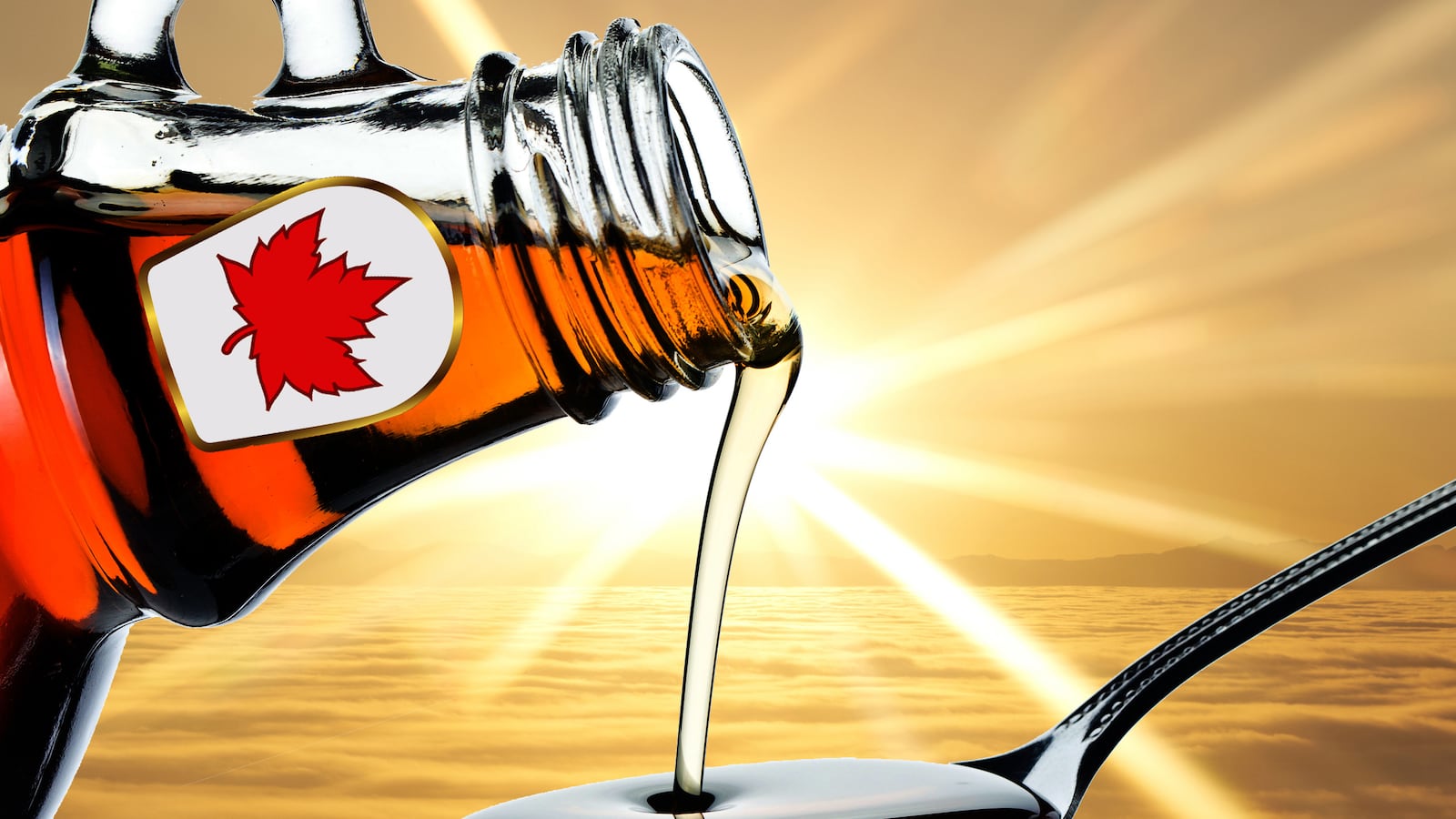Sweet news for maple syrup fans: The sugary pancake-topper may be more than delicious; it could help fight antibiotic-resistant bacteria.
New research shows that concentrated extracts of Canada’s finest export make disease-inducing bacteria more vulnerable to medication—findings that could both enhance the reliability of common antibiotics and reduce our reliance on them in the process.
The study, carried out at McGill University, used syrup high in phenolic compounds—enhanced by freezing samples to create the richest possible extract—on strains of infection-causing microbes including E. coli and proteus mirabilis (which can lead to urinary tract infections). The sweet stuff was not only able to fight bacteria but also successful in destroying biofilms when combined with antibiotics, proving that pairing the two could be particularly effective in fighting off disease. Extracts appeared to damage bacterial cells’ outer membranes, increasing the chances of them being susceptible to medication.
Though clinical trials are yet to take place, the leader of McGill’s research team, Professor Nathalie Tufenkji, is hopeful that the good news is just beginning. “The findings suggest a potentially simple and effective approach for reducing antibiotic usage,” says Tufenkji. “I could see maple syrup extract being incorporated eventually, for example, into the capsules of antibiotics.”
For a store-bought sauce, its effects are pretty impressive.
The syrup has long been lauded as a healthier option than processed sweeteners—namely due to being laden with nutrients including zinc and calcium—but has also been found to have major benefits. Studies have found that it can stimulate insulin release through pancreatic cells, aiding those with diabetes, as well as enhancing liver function by enabling a healthier diet. Its manganese stores can prove invaluable in repairing muscle and cell damage, while replacing processed sugars with the natural equivalent can reduce the bloating experienced after eating sugary foods.
“Everything the tree filters out from Mother Nature and all of the good minerals, antioxidants, and everything it is doing for the food for the tree, stays in the sugar,” explains the New York State Maple Association’s Helen Thomas. “[Sap] has complex components that are things we also need to stay healthy, just like the trees.”
Maple syrup is the only product we eat that comes directly from plant sap—it is procured by drilling holes into maple trees, and boiling the sugary fluid until it becomes thick and syrupy—so perhaps we shouldn’t be so surprised that it is so rich in antioxidants.But while its health benefits have previously been documented, the fact that it could curb our antibiotic use is a major development. In 2013, the Centers for Disease Control and Prevention found that as many as 80 percent of Americans were receiving this medication annually—a perturbing statistic considering that prescription drug abuse is so widespread. With 5 percent of the U.S. consuming 75 percent of the world’s prescription drugs, any means by which to curtail this excessive intake should be welcomed.
By using maple syrup to weaken the potency of antibiotic-resistant diseases—which annually infect 2 million people in the U.S. and are responsible for the deaths of 23,000 each year—more effective antibiotics could be made, and our need for them slashed, providing a natural solution to one of the country’s greatest man-made problems.






